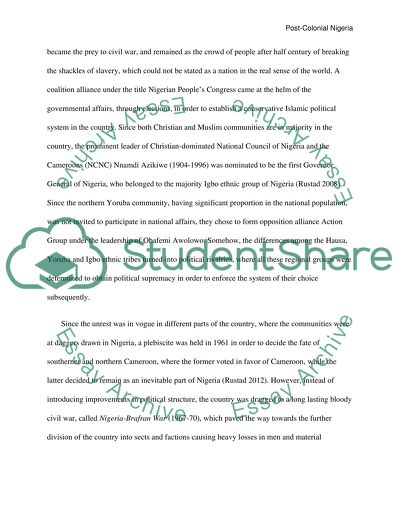Cite this document
(“Post-Colonial Nigeria Political History Essay Example | Topics and Well Written Essays - 1250 words”, n.d.)
Retrieved from https://studentshare.org/history/1461433-political-history-after-colonial-independence
Retrieved from https://studentshare.org/history/1461433-political-history-after-colonial-independence
(Post-Colonial Nigeria Political History Essay Example | Topics and Well Written Essays - 1250 Words)
https://studentshare.org/history/1461433-political-history-after-colonial-independence.
https://studentshare.org/history/1461433-political-history-after-colonial-independence.
“Post-Colonial Nigeria Political History Essay Example | Topics and Well Written Essays - 1250 Words”, n.d. https://studentshare.org/history/1461433-political-history-after-colonial-independence.


